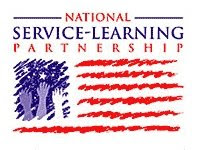Amy McKee tells a group of 3- and 4-year-olds to pretend the water bottle she's holding up is really a lake.
Then she plucks a yellow napkin out of a bag beside her feet, which represents her picnic lunch.
"I'm in hurry so I'm just going to drop this on the ground, but wait, it went in my lake," she says as she stuffs the napkin into her bottle.
McKee proceeds to push a candy wrapper, straw and other trash in her bottle, transforming it into a foggy mess.
"You can't drink that, it's ucky," squeals Owen Schuldt, 3.
Would fish be OK to swim in this? McKee asks.
No, the kids yell in unison.
---
McKee, an Ozarks Technical Community College (OTC) student, is a volunteer with the Earth Team Early Childhood Education Project and teaches preschool-age children in the Upper White River Watershed about water conservation. McKee and other OTC students visit early childhood centers and teach children basic conservation concepts, such as how to keep water clean. This pilot project was created at the South Missouri Water Quality Project office and advocates say it benefits the students with practical experience and promotes early childhood education and water conservation.
- Read the entire article.
The Ozark environmental program serves as a great model for service-learning practitioners because it:
- is a complete partnership between higher education, state government, and community based organizations. Partnerships that have multiple sources of buy-in and support tend to be more sustainable and effective in affecting change in the community over time.
- shows that very young children can be conscious of others and the environment and can engage in service-learning.
- promotes introduction of service-learning early in a child's education, which can lead to increased student involvement later on.
Here are some resources if you are interested in introducing environment/conservation and service-learning in your class or program:
1. EarthForce - organization that trains and supports educators in programs that enable young people to lead community action projects focused on creating sustainable solutions to local environment issues in the community. Learn more about the programs, tools for teachers, and read a success story.
2. East Bay Conservation Corps - a California nonprofit dedicated to promoting youth development through environmental stewardship and service-learning and to further education
reform and social change. Download their latest publication, Service-Learning As Civic Engagement: A Resource Guide for the Elementary Grades.
3. Interdisciplinary Connections to Service-Learning - Environment [Wisconsin Dept of Public Instruction]
4. Science Service-Learning Project Examples [Kids Consortium]
5. Adopt-A-Watershed is a service-learning program geared towards students K-12. Adopt-A-Watershed uses a local watershed in the school's community and all of its natural resources to engage students in hands-on activities making science applicable to their lives.
6. GreenWorks is a Project Learning Tree environmental community action program. It encourages students to participate in community based partnerships by developing and implementing environmental action projects, such as graffiti paint overs, tree plantings, stream clean-ups, and recycling projects.
7. Hot Topic: Environment [National Service-Learning Clearinghouse]
AND funding opportunities to support implementation:
1. Cyber Sierra's Conservation Grants Center
2. Foundation Center's Environment Grants
3. the Partnership's Funding page
4. Science Grants [Salt Lake City Schools]
5. Environment and Conservation grants [Fundsnet Services]
6. Red, White, and Green Climate Change Grant [Youth Service America]
~ Susan, National Service-Learning Partnership




No comments:
Post a Comment